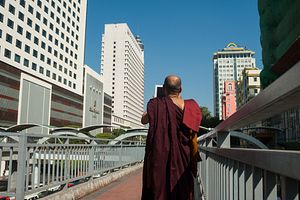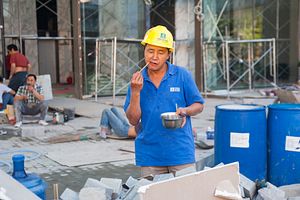Over 20 years have passed since Myanmar began to open up to tourism. For decades, its people had suffered from economic sanctions and the country had been in a deep sleep. Finally, the former British crown colony has awoken and is currently catching up with Western modernity and progress.
The country once known as Burma has strapped off its narrow corset of military rule and is undergoing a rapid transformation, both politically and economically. This change is most evident in the nation’s former capital Yangon, or Rangoon as it was once known. Myanmar’s largest city still serves as the commercial hub with a population of more than five million. State-of-the-art apartments and office buildings are being erected throughout the city, largely financed with the support of foreign investors.
The most striking change is currently taking place near the Sule Pagoda, where several concrete blocks are being constructed, with the first one having reached completion last year. The new Sule Square combines modern office space and commercial functions like luxury retailers, restaurants and a spacious supermarket.
In the narrow alleys in between street vendors, food stalls and fortune tellers line the pavement. Hawkers spread out their newspapers and books while boiling hot oil splashes from a rusty pan of a neighboring snack vendor. Yangon’s city life still takes place on the street and in the shade of its old colonial buildings. Hopefully this cultural heritage does not fall victim to the investors’ greed as the architectural style contributes enormously to the unmistakable charm of this city.
Yangon’s traffic comes to a complete standstill every day, especially in the peak hours, when honking avalanches of cars congest the city’s streets. In order to improve the chaotic traffic situation, the government has started to introduce young female traffic police officers who now control and navigate the increasing amount of vehicles.
According to many Burmese, a lot has improved since the opening of the country and after the elections in 2015. Everyone welcomes the fading appearance of the authoritarian oppression. Political change and economic progress are now being discussed controversially and openly. It seems though as if the rapid transformation of Yangon is happening at an unprecedented pace. Regardless of Yangon’s development over the coming years, the very natural friendliness of its people will surely survive.
Olaf Schuelke is a freelance photographer based in Southeast Asia.














































